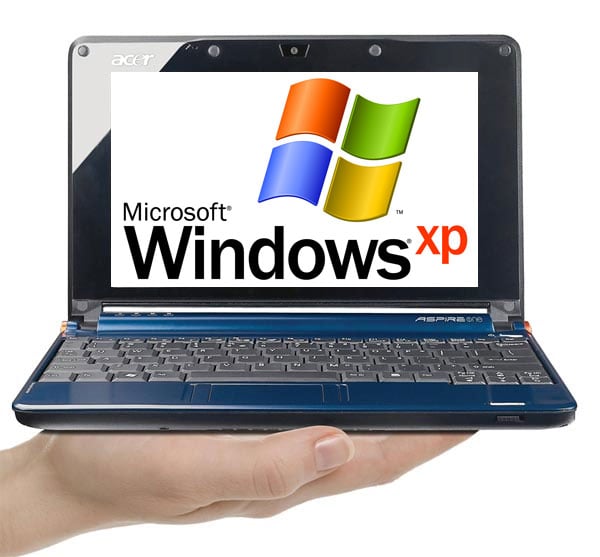Microsoft [MSFT] has announced that it will no longer be offering Windows XP to netbook manufacturers from October 2010. This strategic move by Microsoft is aimed at encouraging netbook manufacturers to transition from the aging Windows XP operating system to the more modern Windows 7.
Manufacturers must install Windows 7 Starter Edition instead of Windows XP from the 22nd of October 2010. This decision won’t come as a surprise to manufacturers, as many are already using Windows 7 for their netbooks. The shift to Windows 7 is seen as a necessary step to ensure that netbooks remain secure and up-to-date with the latest technological advancements.

Why the Transition to Windows 7?
Microsoft has said that around 81 percent of new netbooks in the US already use Windows 7 as their operating system. This high adoption rate indicates that both manufacturers and consumers recognize the benefits of Windows 7 over Windows XP. Windows 7 offers improved performance, enhanced security features, and a more user-friendly interface compared to Windows XP. Additionally, Windows 7 is designed to take advantage of modern hardware capabilities, which can lead to better overall performance on netbooks.
As support for Windows XP is due to end on the 13th of July 2010, there really isn’t much point for manufacturers to continue selling netbooks with XP between now and October. Without official support, Windows XP will no longer receive security updates or technical assistance from Microsoft, making it a less viable option for new devices.
Implications for Netbook Users and Manufacturers
For netbook users, the transition to Windows 7 means access to a more secure and efficient operating system. Windows 7 Starter Edition, while more limited in features compared to other editions of Windows 7, still provides a significant upgrade over Windows XP. Users will benefit from better system stability, improved battery life, and enhanced connectivity options.
For manufacturers, this transition represents an opportunity to offer more competitive products in the market. By pre-installing Windows 7, manufacturers can ensure that their netbooks meet the current standards of performance and security that consumers expect. This move also aligns with the broader industry trend of phasing out older software in favor of newer, more capable alternatives.
Moreover, the transition to Windows 7 could potentially open up new avenues for innovation in the netbook market. With a more robust operating system, manufacturers might explore integrating additional features and functionalities that were not feasible with Windows XP. This could lead to the development of more versatile and powerful netbooks, catering to a wider range of user needs.
In conclusion, Microsoft’s decision to discontinue Windows XP for netbooks from October 2010 marks a significant step towards modernizing the netbook ecosystem. By mandating the use of Windows 7 Starter Edition, Microsoft is ensuring that both manufacturers and users benefit from a more secure, efficient, and future-proof operating system. As the industry moves forward, this transition is expected to drive further innovation and improvements in the netbook market.
via Slash Gear
Latest Geeky Gadgets Deals
Disclosure: Some of our articles include affiliate links. If you buy something through one of these links, Geeky Gadgets may earn an affiliate commission. Learn about our Disclosure Policy.